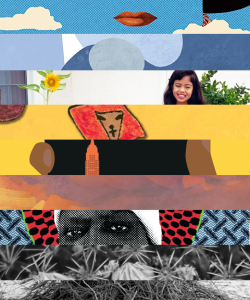Congress Increases Funding for Key Arts Agencies, PEN America Literary Awards Longlists, and More
Gabriel Bump has won the 2020 Ernest J. Gaines Award; mysterious phishing scams rock the publishing industry; Barry Lopez has died; and other stories.
Jump to navigation Skip to content
Gabriel Bump has won the 2020 Ernest J. Gaines Award; mysterious phishing scams rock the publishing industry; Barry Lopez has died; and other stories.
I am in awe of the effects of time on the city of Detroit as I write this final blog post for the year of 2020. A different world has taken shape since December of last year. The landscape of how writers and non-writers alike engage with the literary arts has changed just as much. In Detroit, streamed virtual events, online book sales, and Facebook Live panels have taken the place of in-person poetry nights, storytelling events, and all festivals. While a tough move for all of us, it has also afforded writers the ability to speak with wider audiences despite where they are physically located. Considering the long-standing transportation issues that exist within the city, there is a new sort of connectedness that has come from these virtual readings. Readings by Aricka Foreman, Nandi Comer, and Tommye Blount come to mind as highlights of 2020.
I’ve found myself deeply appreciative of Detroit’s dedication to providing quality literary events and programming. I recall InsideOut Literary Arts’ Louder Than a Bomb Detroit Youth Poetry Festival, which pivoted to a completely online model just weeks after statewide shutdowns. That festival provided youth with numerous workshop and reading opportunities that allowed for direct reflection on the pandemic. I also remember M. L. Liebler’s virtual adaptation of the Detroit Lit Walk, which invited viewers to engage with seven artists from the comfort of their home. These examples and more represent the resiliency of writing as an art form, and sharing that writing as a form of expression.
Great things have also come out of the United States of Writing this year! I have to commend Lupe Mendez of Houston and Kelly Harris of New Orleans for leading amazing events in their hometowns and allowing all of us to get a taste of their literary communities through this blog. Poets & Writers’ funding through 2020 Project Grants for BIPOC Writers and rolling out Readings & Workshops mini-grants for virtual events have given each of our cities the means to expand our literary communities like never before. We look forward to continuing this great work in 2021.
Guernica launches special issue on fashion; Paramount TV Studios and Anonymous Content plan a new Little House on the Prairie; Meetra Javed writes in praise of Fariha Róisín; and other stories.

Ten author readings that reflect the beauty, hope, resilience, and strength of writers to confront the failures of the past and to rejoice in the promise of what lies ahead.
A sound designer applies her skills to fiction; Literary Hub reveals the best reviewed nonfiction of the year; Michael Bible muses on style; and other stories.
Poet Marvin Bell has died at age eighty-three; Kazim Ali reflects on poetry as a pathway to the future; Hannah Abigail Clarke talks refusing assimilation; and other stories.

A teaching press based at High Point University in North Carolina that launched early this year aims to feature experimental poetry, fiction, and translation that “maintains a connection to human experience.”

The first lines of a dozen noteworthy books, including Let Me Tell You What I Mean by Joan Didion and The Sunflower Cast a Spell to Save Us From the Void by Jackie Wang.

The Impact Library Program, an initiative of the nonprofit Little Free Library, brings free miniature libraries to communities where books are scarce to encourage a love of reading and improve literacy across the country.

The Ford Foundation and the Andrew W. Mellon Foundation have launched a fellowship program that honors disabled writers and artists in a variety of disciplines with grants of $50,000 each.